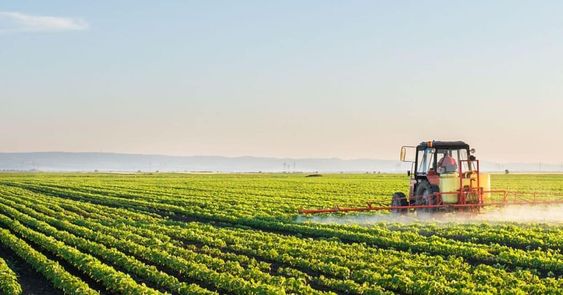
The Indian government is working on a number of schemes to increase the income of the farmers. The aim of government schemes for farmers is to increase the farmers’ economic and mental strength. Every farmer should know and understand about these schemes so that they can take advantage of it. So, check out below what are the government schemes for farmers available in India.
Government Schemes For Farmers
Table of Contents
Here are some of the government schemes for farmers that are available in India. Check out here below:
Soil Health Card Scheme
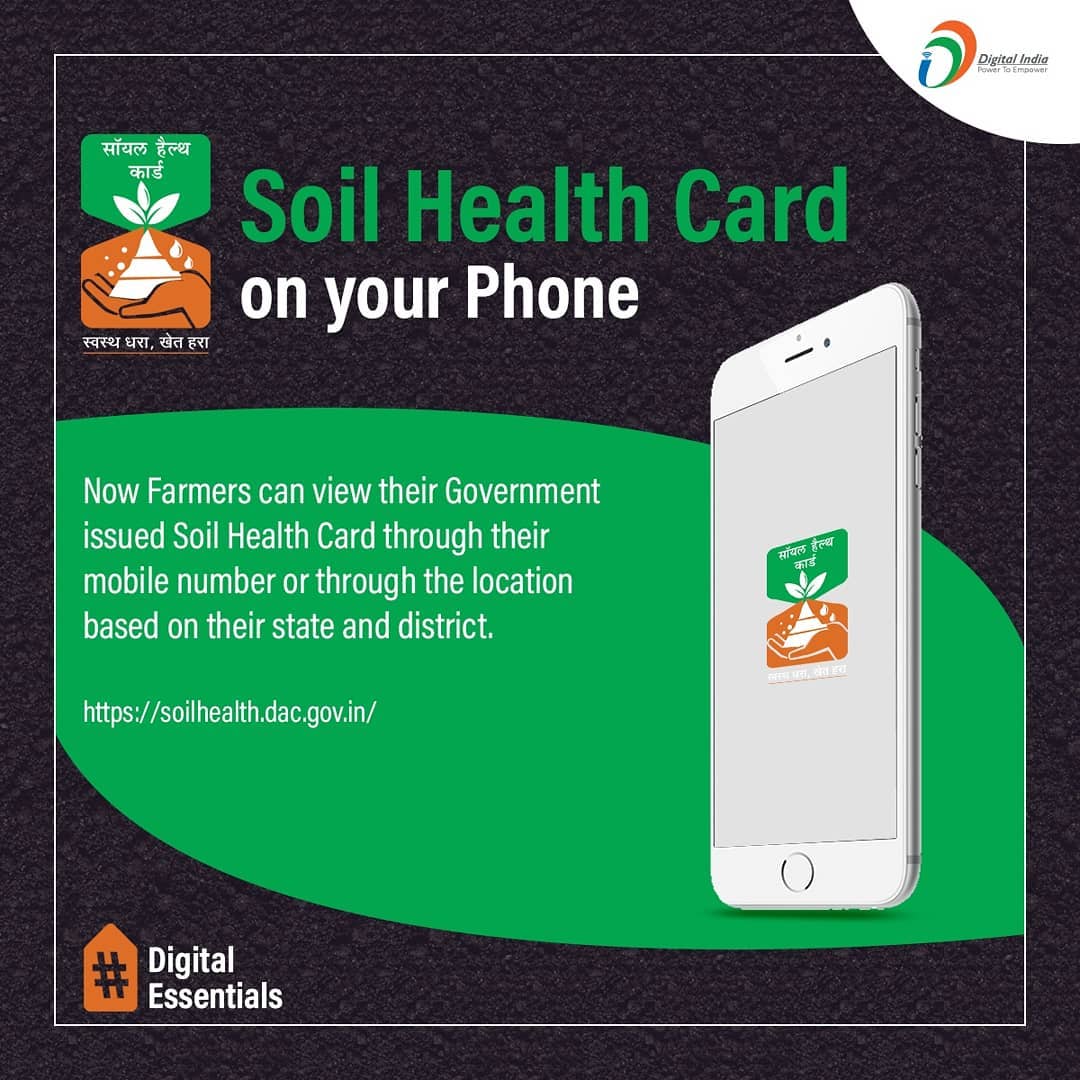
Under the Soil Health Card Scheme, farmers can locate large and small nutrients obtainable in their soil. This will help in making proper use of fertilizers and improving soil fertility. The Soil Health Card Scheme was launched in the year 2015. This scheme was presented to assist the State Govt. to issue the Soil Health Cards (SHC) to all the farmers in India.
The Soil Health Cards (SHC) provides information to the farmers on the nutrient grade of their soil along with a recommendation on the suitable quantity of nutrients to be useful for cultivating soil health as well as its fertility.
Paramparagat Krishi Vikas Yojana (PKVY)

The Paramparagat Krishi Vikas Yojana (PKVY) scheme was applied with an aim to encourage organic farming in India. Such Government Schemes for farmers help to improve the soil health as well as the organic matter and thus increase the net earnings of the farmer.
Neem Coated Urea (NCU):

The Neem Coating Urea (NCU) has been implemented to control the use of urea and to enhance the accessibility of nitrogen (N) to crop as well as it will reduce the cost of the fertilizer application. Now the entire quantity of domestic manufactured and trade in urea is nothing but Neem coating.
Neem coating urea (NCU) slows down the discharge of fertilizer as well as makes it accessible to crop in an operative manner. The predictable saving is Ten (10%) of urea intake, thereby resulting in decreased cost of farming and an enhanced soil health organization.
The Government of India has mandated the Neem Coating Urea (NCU) in agricultural use. The use of urea was subsidized for agricultural use however it was then being abstracted to non-agricultural purposes.
Pradhan Mantri Krishi Sinchayee Yojana (PMKSY) & Restructured Weather Based Crop Insurance Scheme (RWBCIS)

This Pradhan Mantri Krishi Sinchayee Yojana (PMKSY) & Restructured Weather Based Crop Insurance Scheme (RWBCIS) was implemented from the Kharif 2016 to deliver inclusive crop protection coverage from the pre-sowing to the post-harvest fatalities against the non-avoidable natural risks.
Such Government schemes for farmers are only for risk extenuation tools obtainable to farmers at an exceptionally low premium rate payable by the farmers:
- 2% for the Kharif crops
- 5% for the annual horticultural/commercial crops
- 1.5% for the Rabi Crop
The premium is given by the State and Central Governments on the 50:50 basis. Such Government schemes for farmers are obligatory for the borrower farmers & also intended for the non-loanee farmers.
National Agricultural Marketing Plan (E-NAM)

The National Agricultural Marketing Scheme was implemented on 14th April 2016. So far, 455 markets of 13 states have been linked to e-NAM.
This innovation marketing process will help in bringing better value, transparency, and competitiveness, which will help farmers to get better pay for their products and move forward in the direction of ‘a nation one market’.
The e-NAM is a pan-India electric trading portal that links the present Agricultural Produce Market Committee (APMC) to generate a united national market for agricultural commodities.
The Small Farmers Agribusiness Consortium (SFAC) is the chief agency for applying e-NAM under the guidance of the Ministry of Farmers’ Welfare and Agriculture, Government of India (GoI).
Pradhan Mantri Fasal Bima Yojna (PMFBY)
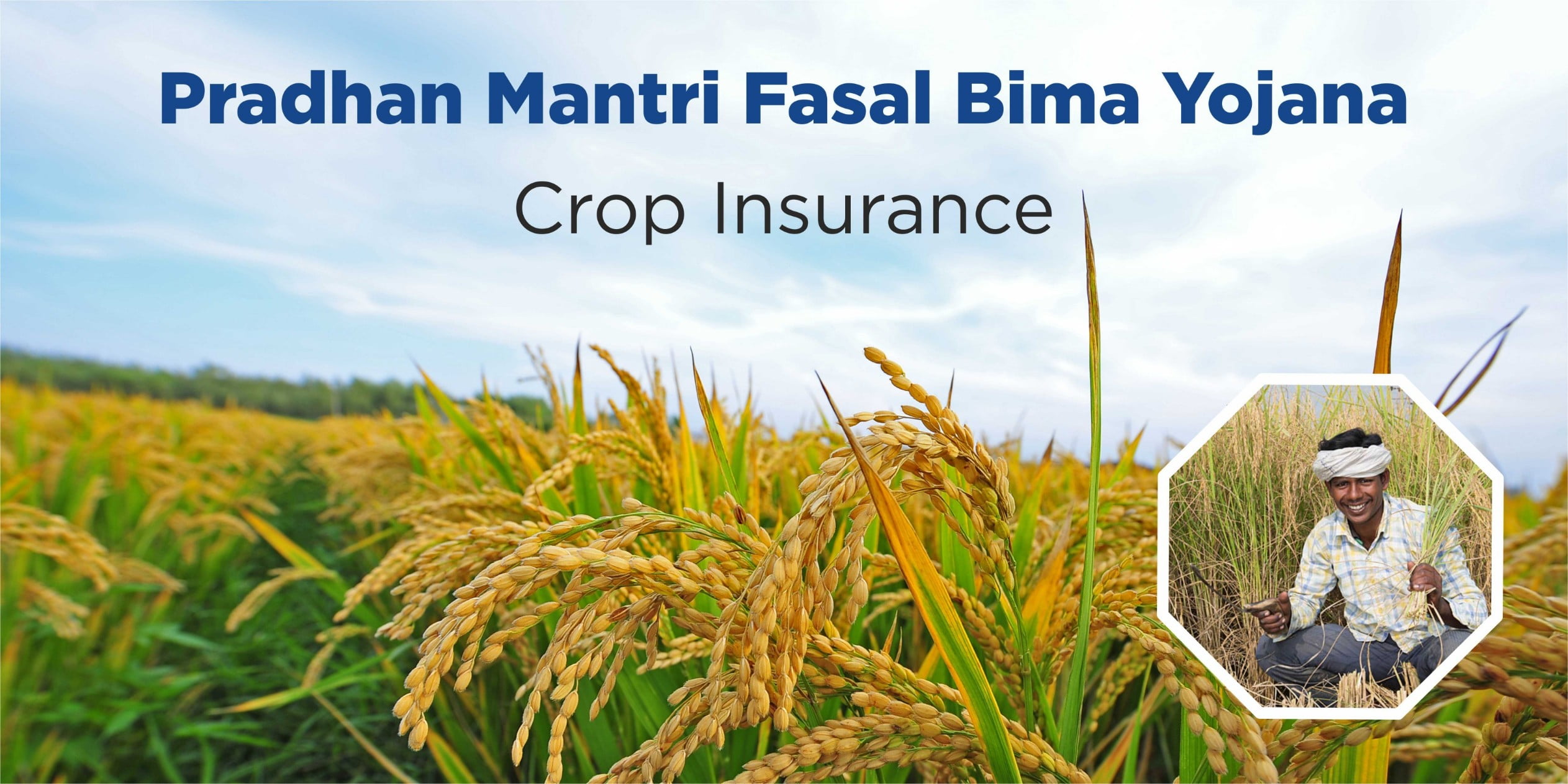
The Pradhan Mantri Fasal Bima Yojana (PMFBY) has been implemented from the Kharif season 14th January 2016 and it is obtainable to farmers on low premiums. This scheme will provide insurance cover for all phases of the crop cycle, including after-harvest risks in some cases.
The Government provides interest concession at a 3% rate on short term crop loan up to INR 3 lakhs. At present, loans are obtainable to the farmers at 7% per annum interest rate, which is reduced by 4% on immediate payment.
Rashtriya Krishi Vikas Yojana (RKVY)
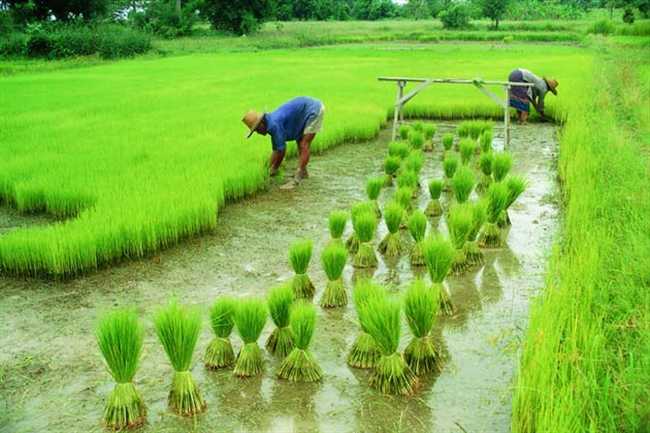
The Rashtriya Krishi Vikas Yojana (RKVY) scheme was started in the year 2007 as a protected scheme for confirming the holistic growth of agriculture as well as the related sectors by permitting states to select their own cultivation and related sector growth activities according to the state/district agriculture plan.
Such Government schemes for farmers were implemented in the states according to their needs, for which special attention is needed to increase productivity & production in the state.
States provide flexibility and self-sufficiency in the implementation of schemes, selection, and selection of programs/projects under implementation and their implementation according to their needs, priorities, and agro-climatic needs.
National Food Security Mission (NFSM)
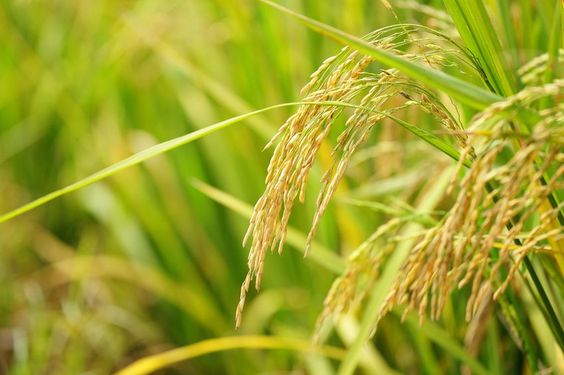
In the 53rd meeting of the National Development Council (NDC), which was held on May 29, in the year 2007 espoused a purpose to promote a Food Security Mission (FSM) comprising wheat, pulses, and rice to upsurge the yearly manufacture of
- Rice by ten (10) million tons,
- Production of wheat by eight (8) million tons
- And the production pulses by two (2) million tons by the completion of the 11th Plan (2011-12).
Consequently, a Centrally Supported Scheme called the National Food Security Mission (NFSM) was implemented in October in the year 2007.
The National Food Security Mission (NFSM) had a devastating success, as well as, accomplished the targeted production of wheat, pulses, and rice. The Mission even continued during the twelfth (12th) 5 Year Plan.
NFSM Wheat

States: 11
Districts: 126
NFSM Rice
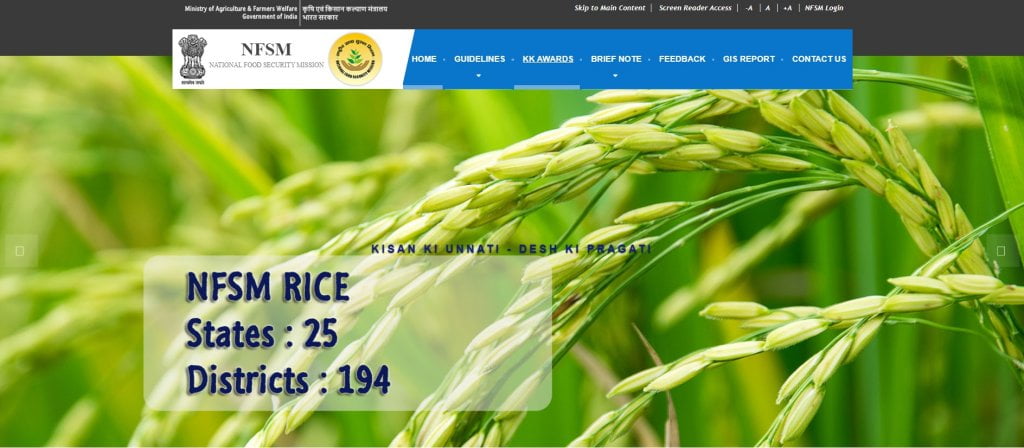
States: 25
Districts: 194
NFSM Pulses
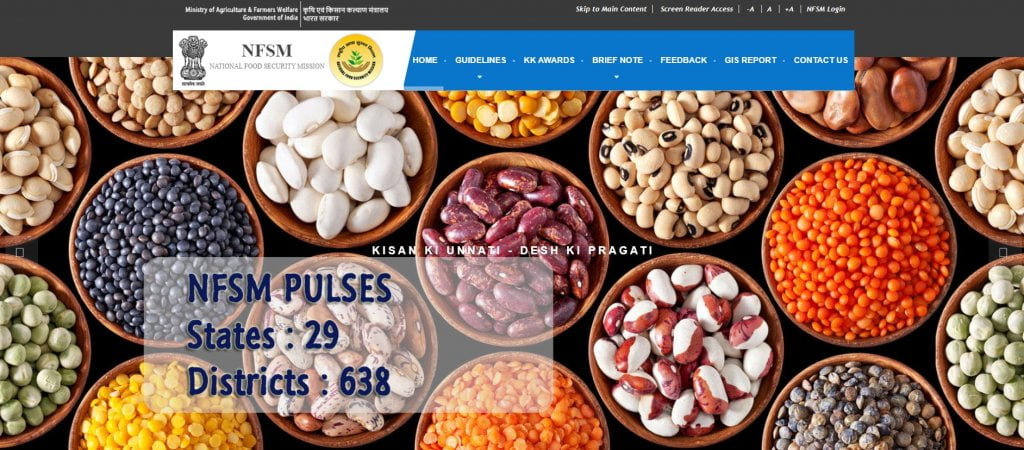
States: 29
Districts: 638
NFSM Nutri Cereals
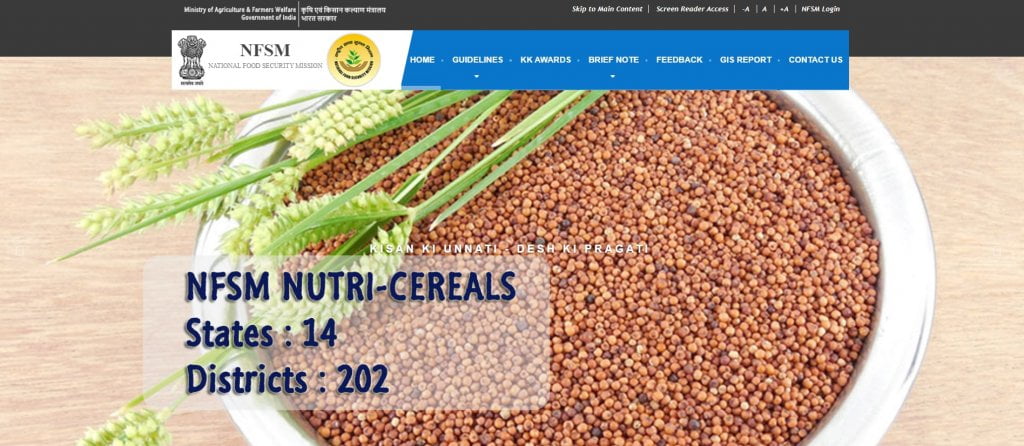
States: 14
Districts: 638

NFSM Oilseeds: 26 states
NFSM Oil Palm: 13 States
NFSM TBOs: 12 states
National Mission on Oilseeds and Oil Palm (NMOOP)
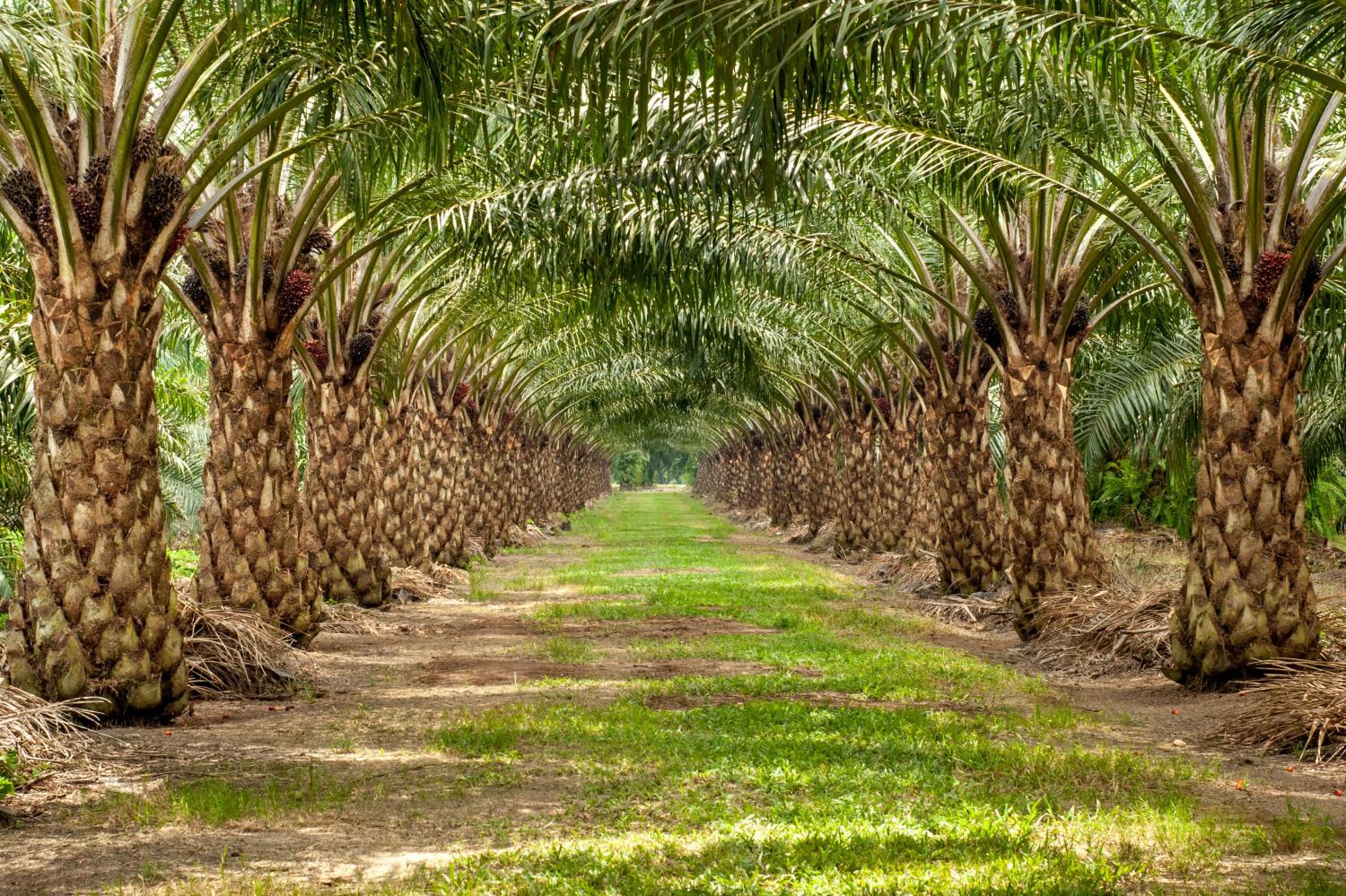
India is one of the main oilseeds growers & trader of the edible oils. The National Mission on Oilseeds and Oil Palm (NMOOP) is applicable from 2014-15. Its aim is to increase the production and productivity of oilseeds to meet the domestic needs of edible oils. Various programs of this Mission are being implemented through State Agriculture / Horticulture Department.
The Mission for Integrated Development of Horticulture (MIDH)

This Mission for Integrated Development of Horticulture (MIDH) is a Centrally Sponsored Scheme, which is applicable for the overall development of fruits, vegetables and grassroots crops, mushrooms, spices, flora, aromatic vegetation, coconut, cashew nuts, cocoa, and bamboo horticulture area from 2014-15. This mission includes
- National Horticulture Board (NHB)
- National Horticulture Mission (NHM)
- Horticulture Mission for North East & Himalayan States (HMNEH)
- Central Institute for Horticulture (CIH)
- Coconut Development Board (CDB)
Minimum Support Price
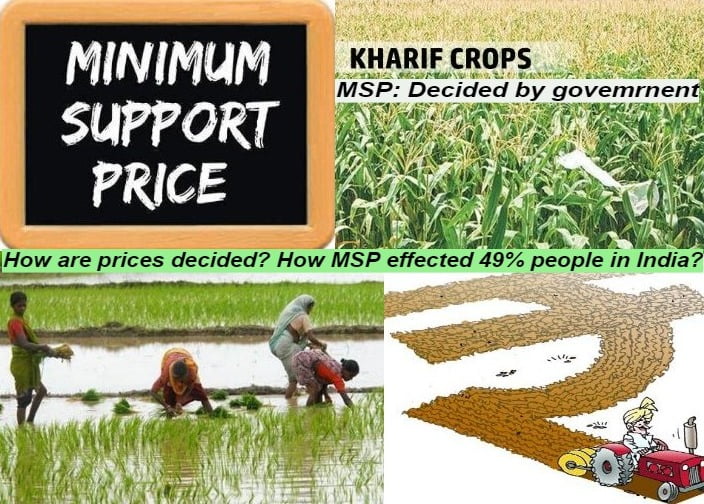
The government buys wheat and rice under the Minimum Support Price. On the request of Union Territories / States, the Government has implemented a market intervention scheme for the purchase of items related to agriculture and horticulture which is not covered under the Minimum Support Price Scheme.
Market intervention scheme has been implemented to provide protection to the farmers of these crops so that they do not sell their crops at a lower price in compulsion if they are in the good harvest if they are good crops.
The minimum support price is notified for both Kharif and Rabi crops which are based on recommendations about the cost and prices of the agriculture committee. The commission collects and analyzes the data about the cost of crops and recommends a minimum support price.
In order to encourage the pulses and oilseeds crops in the country, the government has announced a bonus for Kharif 2017-18 above the minimum support price. The government had also offered a bonus over the minimum support price in the case of pulses and oilseeds last year.
Interest Subvention Scheme (ISS):

The Indian Government delivers an interest subsidy of 3% on the short-term harvest credits as loan up to INR 3.00 lakh. Currently, the loan is obtainable to the farmers at a 7% interest rate yearly, which gets condensed to 4% on the prompt reimbursement.
Additionally, under the Interest Subvention Scheme (ISS) 2016-17, with the intention of delivering assistance to farmers on the occurrence of natural disasters, the interest subsidy of 2% shall endure being obtainable to the banks for the 1st year on the rationalized amount.
So as to discourage suffering by farmers as well as to inspire them to stock their crop in granaries against negotiable granary receipts, the advantage of the interest subsidy will be obtainable to marginal and small farmers who have Kisan Credit Card (KCC) for an additional period of up to 6 months post-harvest on the similar rate as obtainable to the crop loans.
FAQ:
Q. What are the schemes for farmers in India?
A. The scheme for farmers in India are as follow:
- Pradhan Mantri Fasal Bima Yojana
- Prime Minister Krishi Sinchayee Yojana
- Pradhan Mantri Kisaan Maan-Dhan Yojana
- National Centre for Cold-Chain Development
- Direct Benefit Transfer (DBT) Portal for Agriculture Schemes
Q. Which scheme was introduced by the government for the benefit of farmers?
A. Pradhan Mantri Fasal Bima Yojana (PMFBY) was introduced by the government for the benefit of farmers. It is the government-sponsored crop insurance scheme that integrates multiple stakeholders on a single platform.
Q. How is the government supporting the farmers in India?
A. The government of India is supporting poor farmers in various ways. The Government has introduced several schemes for the benefit of farmers. Check out the schemes for farmers here.
Q. Who is eligible for the PM Kisan scheme?
A. All landholding farmers’ families, which have cultivable landholding in their names are eligible to get benefit under the scheme
Q. What is FTO in PM Kisan?
A. State and Union Territory Governments generated “Digitally Signed Fund Transfer Order (FTO), district wise and category wise (General/SC/ST). For more details Check Here
Recommended Articles:-
- Pradhan Mantri Awas Yojana Eligibility, Subsidy & All Details
- Pradhan Mantri Rozgar Yojana Loan Online A/C Opening Process
- Beti Bachao Beti Padhao Yojana: Know In Details About It
- What Is Intensified Mission Indradhanush & How It Works?
- See The Procedure To Mudra Bank Loan Apply Online
- Modi Scheme For Loan To Aid Financial Stability & Economic Development
